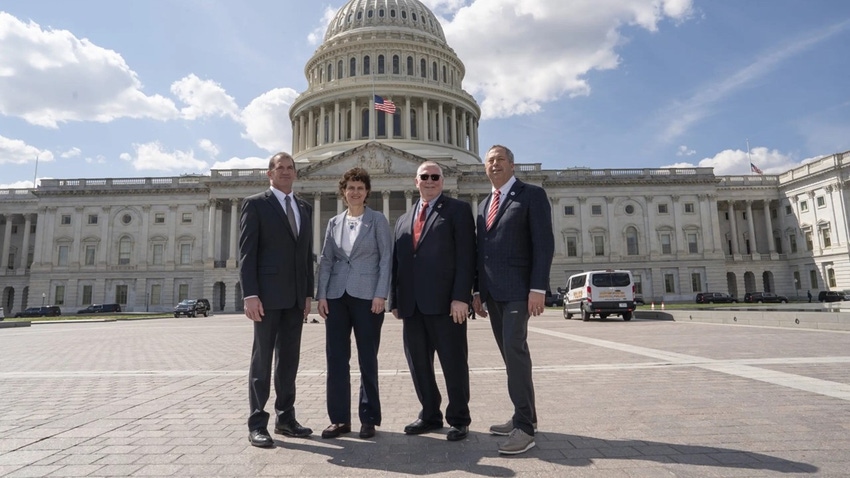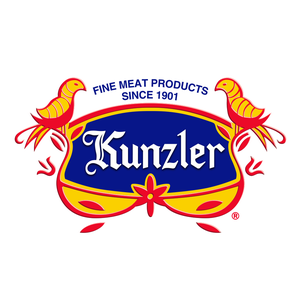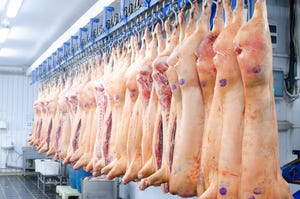Speaking up: America’s pork producers travel to Capitol Hill
Policy priorities at Fall 2023 Legislative Action Conference to include FAD funding, Beagle Brigade Act, trade barriers and the labor shortage.
August 31, 2023

By Lori Stevermer, president-elect, National Pork Producers Council
We often discuss the importance of speaking up and sharing our experiences as pork producers. During my time in the industry, I’ve shared my own story and witnessed others sharing theirs. And I understand the effort it takes, and I’ve seen the difference it can make. From small communities all the way to Washington, D.C., we must continue to use our collective voice to impact change in our industry.
Looking ahead to September and the Fall 2023 Legislative Action Conference, pork producers can make a great impact. The LAC is hosted by the National Pork Producers Council and during this two-day event, more than 100 producers meet directly with policymakers and discuss how legislative decisions impact the day-to-day lives of their farms and families.
During our discussions, we share how U.S. pork production supports the overall economy and highlight how farms and employees contribute to the fabric of rural America, making policy issues vitally important to our industry’s growth and producers’ livelihoods. As we head to D.C. there are a couple of policy priorities we will be addressing.
Prioritizing funding in the farm bill to prevent devastating foreign animal diseases, including African swine fever. An outbreak of an FAD such as foot-and-mouth or ASF would lead to billions of dollars in losses, food shortages, and the immediate closure of export markets. The 2018 Farm Bill funded animal disease and management actions to address FAD risks. As Congress works to finalize the next farm bill, NPPC supports the renewal and expansion of key farm programs known as the three-legged stool. Programs include the National Animal Health Laboratory Network, National Animal Disease Preparedness and Response Program, National Veterinary Stockpile, and National Animal Vaccine and Veterinary Countermeasures Bank.
Additionally, the Agriculture Canine teams of the U.S. Customs and Border Protection perform critically important inspections at the nation’s ports of entry to prevent foreign animal diseases from entering the United States. NPPC urges Congress to support the Beagle Brigade Act of 2023 to provide congressional authority to the USDA’s National Detector Dog Training Center — allowing it to continue to operate.
Maintaining an active trade agenda is critical to supporting America’s pork producers and the U.S. economy. Today, U.S. pork exports account for nearly 25% of production, support over 155,000 jobs domestically and add $61 to the value of each pig. To grow exports, the United States must open new and expand existing markets through free trade and market access agreements. Producers are directly engaging lawmakers to urge the administration to use the Indo-Pacific Economic Framework to address ongoing technical barriers to trade that limit market access among the negotiating parties, which encompass 13 countries, and 1.5 billion consumers. IPEF is set to close in November, which leaves very little time for the United States to secure meaningful market access issues for U.S pork producers.
Finally, with all segments of agriculture struggling with an ongoing labor shortage, producers will discuss the impacts on all aspects of the pork industry. Pig farm employment has declined since 2021 despite higher wages and competitive benefits. Declining and aging rural populations contribute to a dwindling labor pool and low unemployment rates. Current visa programs fail to meet pork industry workforce needs and require commonsense reform. NPPC is asking Congress to ensure any labor reform legislation improves the H-2A visa program to provide visa access to year-round industries.
I look forward to joining my fellow producers in DC in September to talk about these important issues. Whether you’re sharing your story with a member of Congress or your neighbor in their driveway, I encourage you to continue speaking up for our industry and talking about issues to help others understand our challenges and opportunities.
You May Also Like
.png?width=300&auto=webp&quality=80&disable=upscale)


